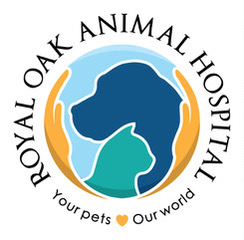Library
-
Seizures are reasonably common in pet birds and should be treated as a medical emergency. Species that are often affected include Amazon parrots, African grey parrots, budgies, canaries, cockatiels, finches, and lovebirds. There are several possible causes of seizures in birds. Diagnostic testing is often required so that your veterinarian can diagnose the problem and determine the necessary treatment plan.
-
Senegal parrots are small- to medium-sized birds. They are generally very friendly and are very adept at mimicking household sounds like the microwave or telephone. They generally bond with one to three household members.
-
At certain times of the year, birds are under the powerful influence of sex hormones and will behave instinctively in distinct ways that you may not have witnessed before. Humans may cause frustration or confusion in their birds with what may be our inappropriate responses to their sexual behaviors. This handout describes several of these behaviors in birds and how to prevent or manage them.
-
There are many methods and opinions described by various people to tame and train birds. This handout is designed to give some guidance to you during this process. Your patience may be strained, and you may sustain some bites, but the rewards of your new relationship with your bird will be fulfilling and long-lasting.
-
Polytetrafluoroethylene (PTFE) is used as a non-stick coating on cookware. Teflon is the most well-known brand name of PTFE-based coatings. When PTFE is heated to high temperatures, it releases toxic particles and acidic gases that are toxic when inhaled. Birds are particularly sensitive to inhaled toxins or poisons and can be poisoned by PTFE even if they are not in the same room. Sadly, sudden death may be the only sign of PTFE poisoning.
-
This handout summarizes the differences between brand name and generic medications. Included is an explanation as to why both forms of medications exist, as well as things to watch out for when opting to use or request a generic medication. Cost savings for generic medications are also discussed.
-
Complete and accurate medical records are like a medical diary for your pet. The ability to review your pet’s medical history before the first appointment will allow your new veterinarian to provide exceptional care that is tailored and timely. You can request that your previous veterinary clinic send your pet's records to your new veterinarian.
-
**This article has been specifically written for pet sitters and how they can reduce their exposure to COVID-19.** COVID-19 is a new respiratory disease in humans, initially discovered late in 2019. Although all coronaviruses are related, they are not all the same virus. As a pet sitter, it is important to limit direct contact with your clients. People can shed the virus without showing any symptoms of disease, so it is important to practice social distancing even with clients who appear healthy. It is also important to limit your contact with potentially contaminated items in your clients’ homes, whether they are at home or not. The most important things you can do to minimize your risk of infection, and minimize the risk of transferring infection to your clients, is to be cautious when interacting with clients and when touching anything that could be contaminated. Communicate with your clients regularly during this pandemic. Having information about your clients’ health can help you avoid taking unnecessary risks. Finally, if you develop any signs of COVID-19, including cough, fever, and/or shortness of breath, it is important that you stay home from work.
-
There are approximately 35 (or more) species of toucans and toucanets, including the smaller, slender aracari. Their most outstanding feature is the large, elongated, hollow beak that varies in coloration from black to multicolored. Hand-raised babies that are well-socialized make charming, affectionate pets, whereas wild toucans are very challenging to tame. They require a large horizontal cage with lots of perches, as they are very active, curious, and enjoy hopping from perch to perch. However, they can be aggressive with other birds and are known to occasionally kill and eat smaller species, such as canaries and finches. Toucans and toucanets require regular, routine veterinary health check-ups.
-
Birds are highly intelligent animals and toys are an important part of their mental health, as well as their mental and physical agility. Toys encourage exercise and provide good wear for the beak and nails. Certain toys are ideal while others can be dangerous to your bird.


